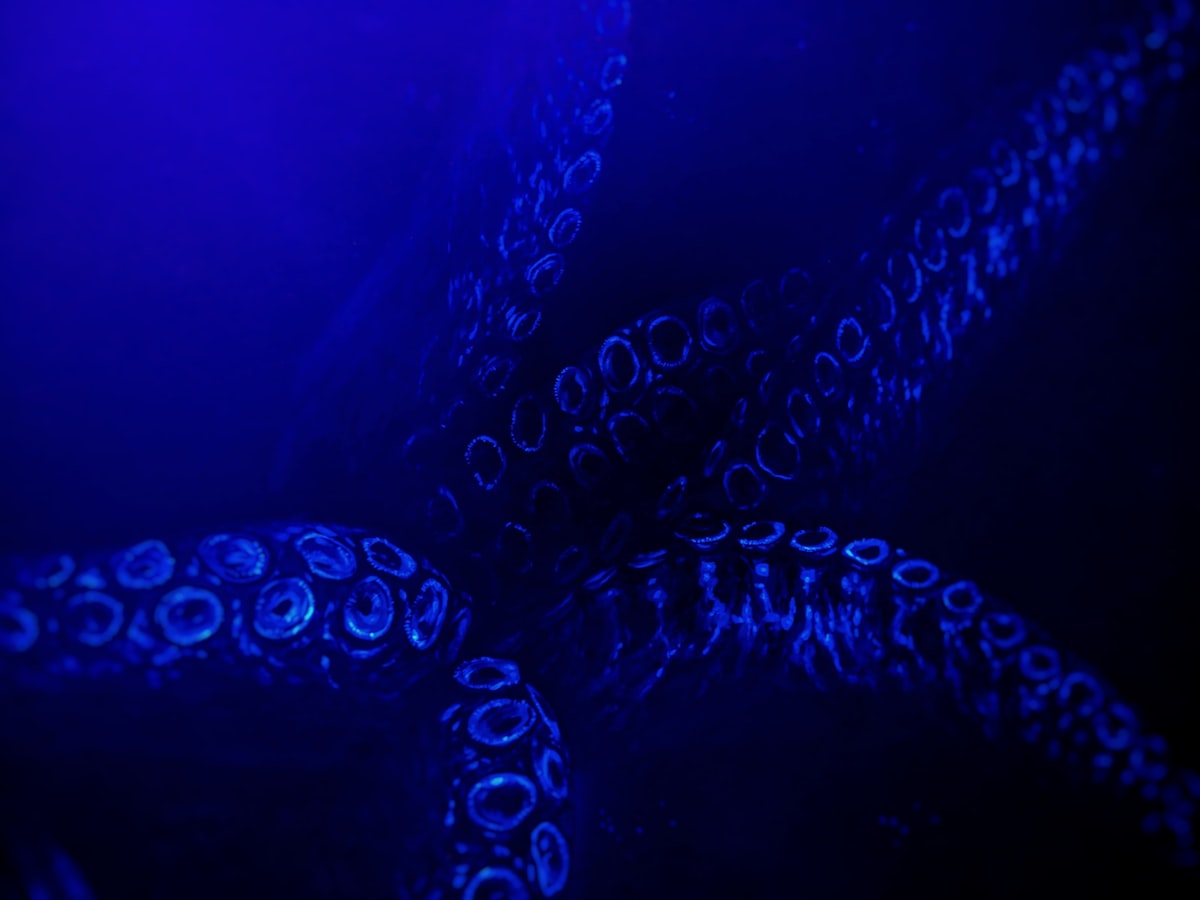Themes of Jonah, Part 2: Jonah and the Big Fish
Everyone knows Jonah is swallowed by a big fish. But what if there's more to the story?

Originally published in Issue #23 on September 3, 2021
Jonah, as anyone with a passing knowledge of Christianity knows, doesn’t drown, but is swallowed by a “big fish.” While many modern Christians have focused on the mechanics of a man being swallowed by a whale or fish, that isn’t really interesting to me (nor, it should be noted, the author, who mentions the fish in exactly three verses, and doesn’t seem to think it’s a big deal).
Unlike what VeggieTales or children’s Bibles may have taught you, the fish is not the main point of the book of Jonah.
The interesting questions to me are the connections with other Hebrew scripture and keywords. Is there anywhere else that we see mention of “big fish” in Hebrew scripture and cosmology (how the Hebrew Bible talks about the structure of reality)? The best place to start, as usual, is Genesis 1.
Then God said, “Let the waters teem with swarms of living creatures, and let birds fly above the earth in the open expanse of the heavens.” God created the great sea monsters and every living creature that moves, with which the waters swarmed after their kind, and every winged bird after its kind; and God saw that it was good. God blessed them, saying, “Be fruitful and multiply, and fill the waters in the seas, and let birds multiply on the earth.” There was evening and there was morning, a fifth day.
— Genesis 1:20-23 (NASB)
Well, how about that. The Hebrew word behind “great sea monsters” is tanin, and there is so much cross-referencing going on in the Hebrew Scriptures that I cannot fully dive into, but suffice to say that the end result is that this “great sea monster” is connected to other elements of Hebrew mythology such as “Leviathan” (Psalm 104:26, etc.).
Given all of the other Genesis and Hebrew cosmological imagery in Jonah’s poem in Jonah 2, I feel fairly comfortable in linking the “big fish” with the great sea monsters of Genesis 1 and the Leviathan connected to it. And I’m not the only one to see this connection. For example, Dr. Tim Mackie, in his notes from his class on Jonah, writes:
The biblical authors were well aware of great, monstrous creatures in the deep sea. They were considered deities among Israel’s neighbors, but for the biblical authors, they were extremely powerful creatures who were under the rule of their Creator.
The Chaos Death Monster
If the imagery being used here is, as I’ve argued, tied to the sea monsters and Leviathan we see throughout scripture, what is the point? Well first, as a Bible nerd, I think it’s cool to see these connections throughout scripture. Second, understanding how these Hebrew authors think and the connections they make helps us to understand the points they are driving home.
The portrayal of Leviathan in scripture is complex. In alternate portrayals of creation, God either slew it (Psalm 74:12-14, Isaiah 51:9-10) or it’s a subservient creature God formed to play in his world (Psalm 104:24-27). The Leviathan is an image of a deity in the creation stories of Israel’s neighbors. By talking about the sea monster as slain by God or a subservient creation of God, the Hebrew authors are telling the Israelites that their God is supreme. No neighboring “god” can compare.
This is the big fish of Jonah. God is so mighty, so awesome and powerful, that when he wants to save Jonah, he simply tells a sea monster, Leviathan, “go swallow him,” and it obeys. Jonah ran to a neighboring nation to try to escape God. He ran to the domain of other gods. But God, even as Jonah said himself, created the land and the sea (Jonah 1:9). All of creation submits to his will and power.
No power in heaven, nor creature of earth, nor anything else is bigger than our God.
For I am persuaded that neither death nor life, nor angels nor rulers, nor things present nor things to come, nor powers, nor height nor depth, nor any other created thing will be able to separate us from the love of God that is in Christ Jesus our Lord.
